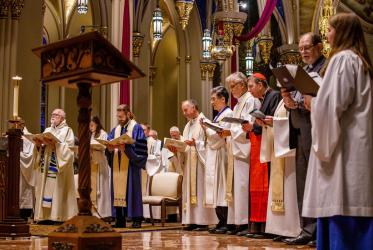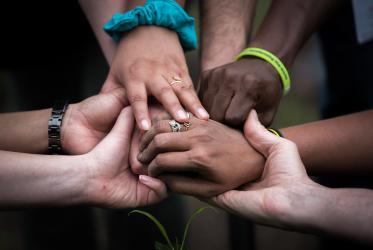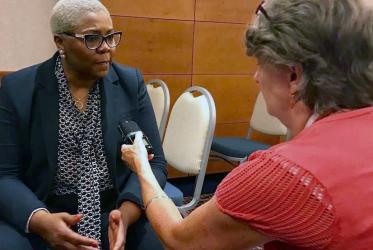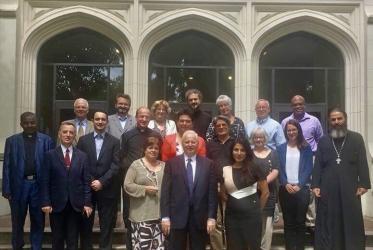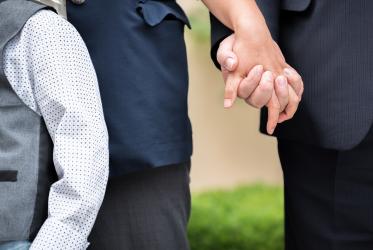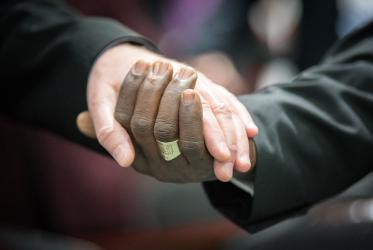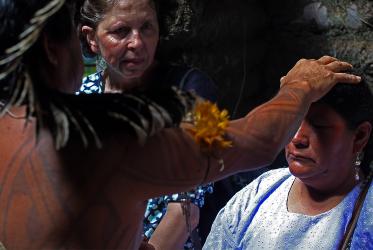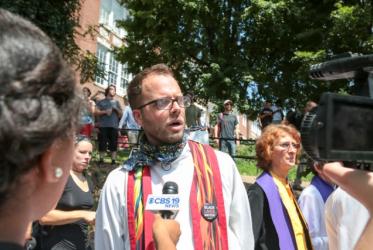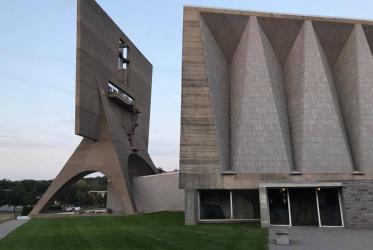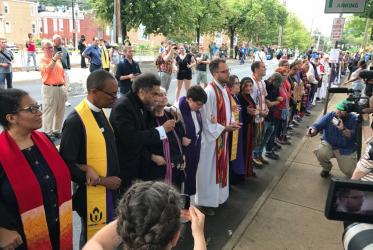Displaying 21 - 40 of 76
Turning mercy and compassion into action
04 March 2019
Devotional guide commemorates enslaved African peoples
07 February 2019
US Catholic bishops approve pastoral letter against racism
19 November 2018
Rev. Traci Blackmon: people of faith must not be silent
21 September 2018
WCC statement welcomes hopeful turn in Korea
20 June 2018
Show up in fight against racism, is white American pastor’s plea
14 February 2018
Dozens of countries sign nuclear weapons ban treaty
20 September 2017
Emily Welty: tide of hope for a world free from nuclear weapons
19 September 2017
Tveit: search for unity “an urgent need today”
09 September 2017
Orthodox bishops in USA condemn racist violence
31 August 2017
Presbyterian leaders: racism in USA is “pernicious poison”
31 August 2017
G20 summit: call to pray for peace in Hamburg
07 July 2017
